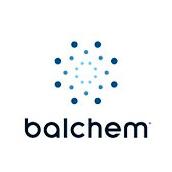UK - Beware of heat stress in stock, producers warned
Published: August 11, 2006
Source : Farmers Weekly
With temperatures exceeding 36C in some parts of the UK over the last month, many people haven't needed to travel abroad this year in search of sun.
But many livestock are struggling to keep cool, dramatically affecting productivity.
Regardless of clear symptoms, heat stress clearly compromises cattle and sheep performance, says MLC beef and sheep scientist Liz Genever.
"Feed intakes and growth rates, ovulation and conception rates and bull and ram fertility are all likely to be affected."
Genus Breeding's beef development manager Neil Wharton says cattle show signs of heat stress at 21C.
"These include high respiration rates, high water consumption, low feed intakes, reduced milk yield, reduced weight gain and less activity.
Feed intake drops by 8-12% at 26C and milk production will fall by 5-20%."
These stresses cause physical and behavioural changes which can become a threat to herd production and fertility performance, he adds.
"Providing plenty of clean drinking water, shade in housing areas and collecting yards, reducing walking distances to the parlour and time in collecting yards will help prevent heat stress," advises Mr Wharton.
Miss Genever adds that grazing stock should have access to fields with sufficient shade in the form of hedges and trees, while the producer should also be alert for fly problems.
"And when needed, moving or gathering stock should only be carried out in the cool of early mornings or late evenings."
With regard to sufficient levels of forage, Miss Genever recommends feeding extra forage during cooler periods to compensate for reduced feeding activity in the heat of the day.
"Water troughs should be working effectively and extra through-space should be provided when necessary.
Cattle buildings should be well ventilated and stocking densities should be reduced where possible.
Wetting heads and backs of housed cattle also helps, she says.
"But avoid using high-pressure hoses and cold water applications (less than 25C) around the heads."
Pigs are also feeling the heat, with vets reporting increased sow and piglet mortality.
Hull-based vet Mark White says on some units litter desertion is occurring when sows leave arks in search of cool places and in some instances neonatal scours is on the increase due to hot weather and poor ventilation.
"Sows are slopping water around to keep cool resulting in mucky and wet conditions for piglets."
BPEX knowledge transfer manager Kayt Johnson says producers should regularly maintain all fan ventilated buildings, while cleaning and checking thermostat settings.
Source
Farmers Weekly
Related topics
Would you like to discuss another topic? Create a new post to engage with experts in the community.
Create a post



.jpg&w=3840&q=75)